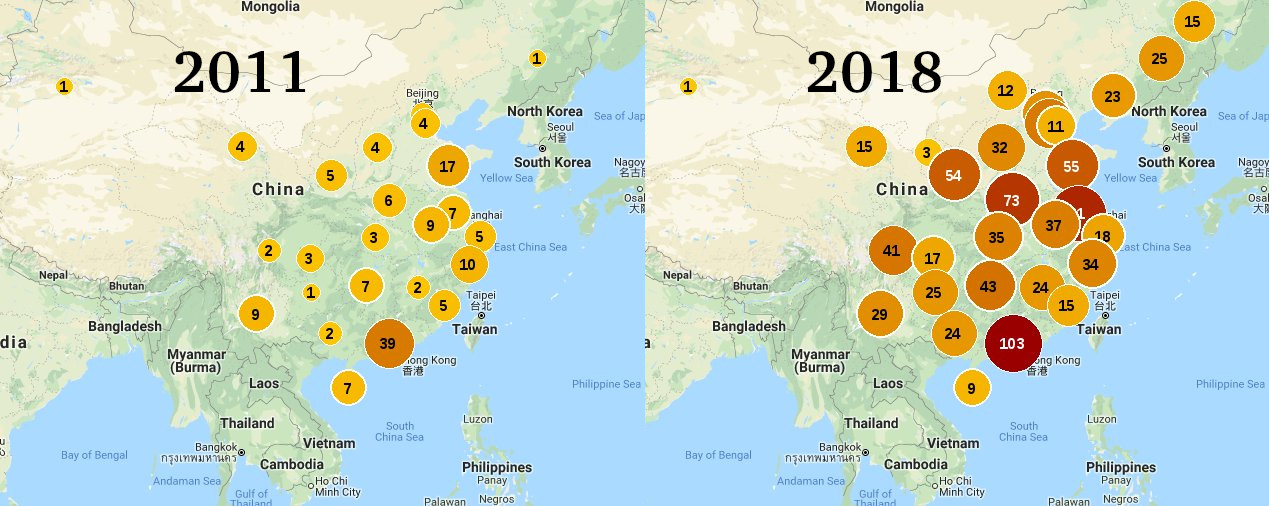To the peoples and communities of the World
Stand up, assemble, and unite for peace, for life, and for dignity!
Those who rule the global economy and national states, liberal or conservative capitalist classes and factions in the West have been for long pursuing their own program and agenda to counter the rise of Chinese as well as other contending capitalist classes from Russia, India, Brazil, and others.
The contestation of one sides program to the program and agenda of the other, liberal / conservative, globalist ruling class factions ended up major conflicts in Eastern Europe, Africa, Middle East, South America and the Pacific. Leaving behind millions of death of innocent people and children and destroying nature and wealth that belongs to all.
In this fight of elephants, by forming and funding alliances, by covert operations, by proxy and drone wars; states using of armed terror groups and fake news has became normal. Surveillance, deception, manipulation, torture, and taking lives without punishment replaced consent based bourgeois democratic form of politics.
Engagement of part of ‘progressive left’ and ‘left liberals’, as well as left-right wing libertarians, some segment of anarchist and communitarian groups, have not only resulted in wide mistrust to alternative liberal-humanist politics in general, hence also caused the failure and expansion of the extreme, right wing, and fascist politics and politicians.
Fall of the liberals and lefts gave way to the rise of right-authoritarian politicians as Trump, Putin, Netanyahu, Erdogan, May, Le Pen, Orban, Wilders, but also this lead to the emergence of groups like ISIS and others across the world.
All resulting in expansion of conflict and wars in the periphery of the falling Western Empire.
At the end, the entire world was brought once more to the brink of yet another inter-capitalist and imperialist world war; where a massive nuclear arsenal can be unleashed and put into use to massacre billions of innocent people globally.
Today it appears even in mainstream media as if that the target of spreading wars is about stopping China or Russia, as well as other rising ruling class factions that capitalist system fostered. Yet in reality the real war has been on, the never ending ‘war on terror’ has been ultimately a war at billions of ordinary people. Unemployed, insecure, exploited, indigenous, gay, lesbian, women, men, and from all ethnic back ground.
The global liberal elite has been managing the chaos and financing wars for the benefit of its own class fraction. Such interest was for a while about establishing a ‘global good governance’, that meant sort of soft imperialism backed by just wars and interventions justified only for the capitalist West.
The result have been everywhere the rapid increasing of military conflicts and erupting of the clashes between local, national and global ruling class factions, turning many countries into blood bath though wars, at the end of the day, launched on the innocent and oppressed governed people.
What got clear today is that a global war, spectacle, this time will be directed on China and Russia, and is about to be triggered and launched either with a false flag or covert action, like Douma Gas attack, as it was the case for the first and second word wars, may be in coming days or hours.
What would a launch of such a global war mean for the masses of oppressed peoples and communities in Europe, the US, and globally is nothing else than the expansion of the tragedies and destruction we have been witnessing with the imperialist wars in Africa, Middle East, Eastern Europe, and inner Asia, since the 90s.
The most important lesson one can get from the past experiences and from the experiences of the last decades, is that not that any program or campaign launched -neither by intellectual left nor its global liberal elite- with the purpose of gaining counter hegemonic political power, would be able to stop this coming war.
Such effective action for peace can only be led by those upon whom this global war is really launched.
Thus the remaining time for the peoples of the world are extremely limited and precious
This can be the real final count-down, and the war can begin in hours.
What you will do now will be historically decisive for all of the humanity, if not for entire life on earth.
This can be our last call, for all times.
That is why we urge all, whoever reads this call, to get energize and get yourself organized. Design and set forth your own local, national, and international action, assemblies and/or permanent networks to stop this war on all of us.
To discuss the ways and possibilities for stopping the coming world war, and for transcending the social and economic system that is may be about the destroy, at least, the human life on earth.
We beg you to connect with each other, face to face, not on facebook or twitter, and with other’s actions, assemblies and networks in mutual respect, love, solidarity, while recognizing each other’s individual – personal and collective autonomy, cultural and ideational differences.
Please keep your self-respect and creativity, while looking for ways and tools to deliver your findings and decisions in touch, together with others’ and forming coherent and homogenous regional and international bodies. That can become a critical mass and deliver accessible message and vision, with strong and universal expressions of such collaboration and solidarity for common humanity.
The day is the day to build a common humanity and rise together, for not only our own survival but for getting a final chance to create genuine wold in dignity.
One for all, all for one
Listen and share the audio version of the call



 In series of books and articles, James D. White have been building a strong and ground-breaking argument regarding Marx, Marxism, Marxist methodology, Marx’s theory of history and how and why his life project of critique of political economy was not competed and remained as “Das Capital”, could not expand on theorising State and World market, and forming an integral whole. With his 2018, Marx and Russia: The Fate of a Doctrine, White culminates his life work and set forwar
In series of books and articles, James D. White have been building a strong and ground-breaking argument regarding Marx, Marxism, Marxist methodology, Marx’s theory of history and how and why his life project of critique of political economy was not competed and remained as “Das Capital”, could not expand on theorising State and World market, and forming an integral whole. With his 2018, Marx and Russia: The Fate of a Doctrine, White culminates his life work and set forwar







